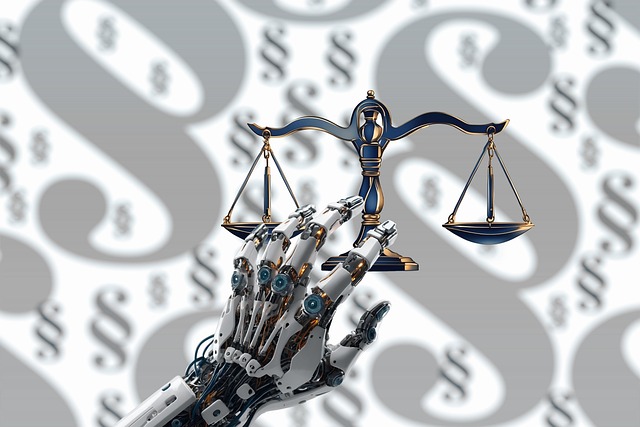Financial Regulation Disputes arise from complex sector interactions, including regulatory non-compliance, contract breaches, fraud, and anti-trust violations. These cases create valuable legal precedents that guide future interpretations of regulations, especially in high-stakes bank or financial institution matters. Jurors' verdicts significantly influence these precedents, with successful defense verdicts showcasing effective legal strategies navigating complex regulations. In criminal law, understanding past cases serves as a tapestry for judges, aiding them in deciding subsequent disputes and ensuring fairness. High-profile cases set powerful legal precedents, impacting corporate liability, regulatory enforcement, and protections for financial fraud victims, making it crucial for lawyers to stay informed for effective argumentation and fair outcomes.
“Unraveling the intricate world of Criminal Law, this article delves into the profound impact of legal precedents on financial regulation disputes. Understanding common issues and their consequences is pivotal, as these shape future legal decisions. We explore how past cases influence outcomes in financial conflicts, focusing on high-profile instances. By examining these scenarios, we gain insights into the dynamic relationship between criminal law and financial regulations, emphasizing the significance of legal precedents in navigating complex dispute resolutions.”
- Understanding Financial Regulation Disputes: An Overview of Common Issues and Their Impact
- The Role of Legal Precedents in Criminal Law: How Past Cases Shape Future Decisions
- Examining High-Profile Cases: Analyzing the Effects of Legal Precedents on Financial Regulation Disputes
Understanding Financial Regulation Disputes: An Overview of Common Issues and Their Impact

Financial Regulation Disputes often arise from complex interactions within the financial sector, leading to legal battles that can have significant economic and societal implications. These disputes cover a wide range of issues, including regulatory compliance, contract breaches, fraud, and anti-trust violations. Understanding the common threads in these cases is crucial, as it provides valuable legal precedents for future reference. For instance, high-stakes cases involving banks or financial institutions frequently hinge on interpretations of regulations, which can set important precedents for similar disputes.
The impact of these disputes goes beyond monetary losses; they shape the integrity and stability of financial markets. Jurors in jury trials play a pivotal role in these high-stakes cases, as their verdicts can determine not just the fate of individuals and businesses involved, but also influence regulatory frameworks. Winning challenging defense verdicts in such cases is often a testament to effective legal strategies that navigate complex regulations, ensuring justice while fostering confidence in financial systems.
The Role of Legal Precedents in Criminal Law: How Past Cases Shape Future Decisions

In the realm of criminal law, legal precedents play a pivotal role, shaping future decisions and interpretations of the law. Past cases, especially those involving financial regulation disputes, serve as a guiding tapestry for judges when confronted with similar scenarios. Each decision becomes a beacon, illuminating how specific facts and circumstances should be navigated in subsequent matters. This principle is particularly crucial in navigating complex Financial Regulation Disputes, where legal teams must strategize based on established precedents to craft winning challenging defense verdicts.
Understanding the interplay of these precedents throughout all stages of the investigative and enforcement process is essential for both corporate and individual clients. By studying prior cases, attorneys can anticipate potential pitfalls, develop robust defenses, and ultimately enhance their chances of a favorable outcome. This strategic approach not only ensures fairness in the legal system but also underscores the importance of precedent in fostering consistency and predictability in criminal law decisions.
Examining High-Profile Cases: Analyzing the Effects of Legal Precedents on Financial Regulation Disputes

High-profile criminal law cases often serve as powerful indicators of legal precedents that shape the landscape of financial regulation disputes. By scrutinizing these cases, we gain insights into how courts interpret and apply laws related to white-collar and economic crimes across the country. Each decision sets a precedent, influencing future legal strategies and outcomes for both prosecutors and defenders. For instance, a notable case might establish new guidelines on corporate liability or enhance protections for victims of financial fraud.
These precedents are particularly significant in complex financial regulation disputes, where parties must navigate intricate legal frameworks. The effects ripple through various sectors, affecting business practices, regulatory enforcement, and individual rights. As lawyers advocate for their clients, understanding these precedents becomes crucial to crafting effective arguments and ensuring fair outcomes in the face of challenging economic crimes allegations.
The intricate relationship between criminal law and financial regulation disputes is evident through the lens of legal precedents. Understanding past cases and their outcomes is pivotal for navigating complex financial regulatory issues. By examining high-profile instances, we uncover the profound impact that legal precedents have on shaping future decisions. This knowledge underscores the importance of a robust legal framework and consistent application of precedents in resolving financial regulation disputes, ultimately ensuring fairness and consistency within the criminal justice system.






